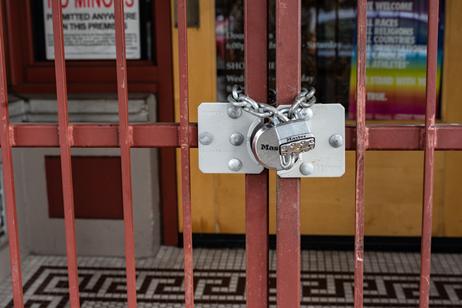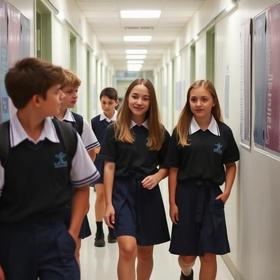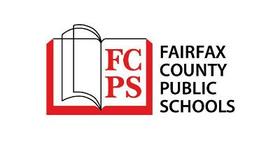The city of Philadelphia has appeared to have a type of love-hate relationship with education in recent decades. Burdened by financial woes and hounded by parents, educators, and lawmakers who want to see a higher quality education offered to Philadelphia youth, public schools have seen more than their share of ups and downs. However, problems seem to be coming to a head in the City of Brotherly Love, with a proposal to close nearly 40 schools on the negotiating table. While parents and students protest this proposed move, school officials assert that a budget crisis leaves them with little choice but to downsize.
School Closing Decision Raises Controversy
My Fox Philly reports that the School District of Philadelphia has announced plans to close 36 schools throughout the city. According to the district, the closures and subsequent moves will put schools “on the road to a higher-performing school system that improves academic outcomes for all students and is financially sustainable.” The recommendations for school closures took a number of factors into consideration, including the academic performance of all students, reducing excess capacity, and limiting capital expenses to a more practical level. However, some opponents of the proposal have suggested the decision to close so many schools is all about the bottom line for the district.
“In its bottom line-focused rush to close neighborhood schools, the SRC [School Reform Commission] is turning its back on the parents, students, and communities that will be affected by these closures,” Jerry Jordan, president of the Philadelphia Federation of Teachers, told My Fox Philly. Jordan has stated that the teachers union will fight the decision to close the schools, working with parents and students that agree the schools should remain open.
The district argues that the closures are necessary for various reasons, including the fact that some schools are well under capacity, rendering them ineffective in terms of cost and value. The district is basing its decision on a study by an outside consulting organization, the Boston Consulting Group. The district had turned to a consultant on the matter after stretching its budget as thin as possible through staff and program cuts, according to People’s World.
The district was grappling with the idea of laying off additional faculty or closing down some of the district’s schools. Under the closure plans, layoffs will be minimal. However, the plan also calls for the closure of additional schools over the next five years. Beginning this summer, other schools will be reconfigured under the consulting group’s recommendations.
This video looks at the story behind the proposed school closures.
Forum Brings Out Protestors
To answer questions and hopefully quell some of the protests rising over the proposed school closures, the Notebook reports that the district recently held a forum to allow parents, students, and educators in the city to confront district officials directly. Superintendent William Hite found himself on the hot seat at that event, as around 300 community members, angry parents, and students came out in droves to question him directly about the decision. Specific concerns about the closures included questions about student safety and the impact of the school closures on the communities at large.
Hite responded to all of the concerns, stating over and over again that the closures would be in the best interests of Philly students. The chief safety officer for the district, Cynthia Dorsey, promised to put additional procedures in place to ensure children’s safety at school. However, parents argued that the longer distance to school alone would extend the risk to some children. Students also expressed worry that mixing students from rival high schools could increase the likelihood of serious fighting inside the school.
Dorsey responded to the latter concern at WPVI-TV, stating, “The world isn’t Paul Robeson [High School]. The world isn’t University City [High School]. The world isn’t West Philly [High School]. We have to live together.”
The protests over the school closures have also extended to Philadelphia banks. My Fox Philly reports that recently protestors demonstrated outside of some banks in the city, citing bad interest rate deals by the institution that led the district into further financial crisis. Those participating in the protest told reporters that the banks have taken millions from the district through these deals.
Another large protest recently occurred outside district headquarters, as hundreds gathered to voice their displeasure over the district’s decision on the school closures. The protesters chanted, “Hey, hey, don’t take our schools away!” and attributed the closures to everything from bad bank deals to taking money from schools to pay for prisons. However, one message remained consistent throughout – closing schools was not good for children, and it was not good for the communities where those children live.
Schools Slated for Closing
Schools on the closure list include both primary and secondary schools. One of the high schools on the list is University High School. According to the superintendent, the school is designed to hold around 2,600 students but currently only has 500. Another secondary school on the chopping block is Bok Technical High School. While this school is slated to be reopened as an academy, the students currently at Bok complain that the closure of the school and its current offerings will leave them with few options.
One of the most diplomatic responses came from community member Wendell Jackson, who has grandchildren in the Philadelphia school system. Jackson told the Notebook, “I can see that downsizing is necessary. But some of these schools are like the mainframes for their communities. I think the district needs to keep one high school and one elementary school in every community.”
Questions? Contact us on Facebook. @publicschoolreview
#schoolclosures #remotelearning #educationcrisis














